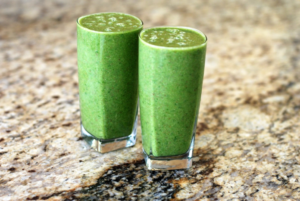
Proper nutrition is a key to health, especially when it comes to elderlies. That is one of the first factors that geriatricians take into account as part of the regular visits, and one of the top recommendations to keep up with a well-balanced, well-nutritioned diet that they make for any preventive or therapeutic scheme. Several studies reported a range of 30%-60% of elderly populations to undergo some levels of undernutrition or malnutrition. Malnutrition and undernutrition in elderlies is a complicated, multi-faceted issue, partially related to biological factors (such as elderlies’ declining metabolism and body response) and partially related to behavior aspects (such as elderlies’ refusal to eat). Weight loss in elderlies is not always a sign of malnutrition or undernutrition, as there exists several involuntary mechanisms of weight loss in elderlies such as Wasting, Cachexia, Sarcopenia. Yet, weight loss would be the most apparent, common symptom of malnutrition. As it was mentioned before, there could exist several physiological aspects to the malnutrition and even that could change from one individual to another, depending on their body response, and state of health of their fat, muscle and other tissues. However, what is prevalently contributing to undernutrition in elderlies is their refusal to participate in activities, part of which is eating or being fed. We all have experienced that moment that our loved one does not want to open their mouth for that spoon of food, or he/she complains about the taste of the food or says he/she cannot swallow the food. One solution that many of us come up with is to try to make things easier to swallow, and what else is more tempting that shakes and nutrition drinks. Depending on their ingredients, nutrition drinks could be a good, delicious supplement to a loved one’s diet, but they can be used only as that extra incentive to increase the appetite of the elderlies, but they should never replace the whole diet. At the best, you may want to grind and squash the food for ease of intake, but you should maintain the ingredients intact. Moreover, when planning to include shakes or supplement drinks for your loved ones, always prepare them at home from fresh ingredients that you picked. Do not rely heavily on commercial nutrition drinks and shakes as part of the routine diet. Majority of these products contain high levels of minerals and vitamins, which could have noticeable adverse effects on your loved one’s body by interacting with other prescription medications and over-the-counter drugs that your loved one is already taking. Just as an example, a small bottle of nutritional drink (say 8 ounce) could be a source for up to 40% of daily need of vitamin K for your loved one, which may sound great, however, that could drastically undermine the efficacy of blood thinners medicine, such as Coumadin, if that is something your loved one is taking. In summary, use nutrition drinks in moderation, try to make them fresh at home, and have it reviewed as part of the whole diet by your loved one’s nutritionist or primary care physician.
“Use nutrition drinks in moderation, try to make them fresh at home, and have it reviewed as part of the whole diet by your loved one’s nutritionist or primary care physician.”


Recent Comments